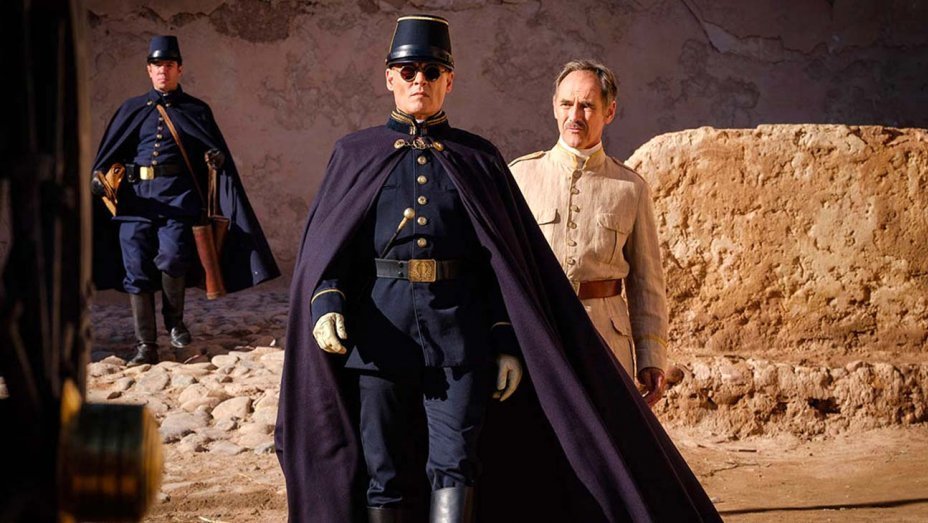Waiting for the Barbarians is weighed down by a meandering screenplay
Written by Ian Thomas Malone, Posted in Blog, Movie Reviews, Pop Culture
Given the current political climate in America, J.M. Coetzee’s 1980 novel Waiting for the Barbarians feels as timely as ever. There has never been a greater public disconnect between society and the police ostensibly there to keep the peace, often instead stoking forces to serve the contrary. Broader national discussions have a tendency to single out the individual merits of those who exist to enforce the law, ignoring the institutional rot that enables injustice.
The film depicts a well-meaning unnamed magistrate (Mark Rylance) of a settlement on the edges of territory called “The Empire.” The local indigenous people live life peacefully, a town where crime is so law that there isn’t even a prison. The stink of colonialism rears its ugly head, but the magistrate is a decent man with genuine concerns for the locals.
The arrival of Colonel Joll (Johnny Depp), who wears sunglasses that are a marvel in this unidentified period setting, upends the peace that the magistrate has worked so hard to maintain. Joll cares only for The Empire, refusing to acknowledge the dignity of those in the settlement. To him, the magistrate rules with too gentle a touch.
Making his English language feature debut, Ciro Guerra delivers an extremely slow burn that’s rather difficult to penetrate. Penning the screenplay for his own source material, Coetzee provides no favors, too often scripting repetitive bland dialogue. There’s almost no exposition, which isn’t really a problem for the self-explanatory plot but the result presents a weird dynamic. Nothing is very hard to follow, but it is often difficult to parse the point of individual scenes.
The acting is very good. Rylance essentially carries the film on his back, a performance that drastically overshadows the subpar script. Depp, though quite a bit subdued, puts forth a solid effort, one of his better roles in years. As Joll’s operative Officer Mandel, Robert Pattinson delivers a very strong supporting performance in the film’s second half.
Guerra handles the production values quite well, staging his scenes like a stage play. The film uses almost no score, putting extra weight on the dialogue that the screenplay isn’t well-equipped to handle. There is barely an action either, further burdening the narrative that already doesn’t know what to do with its close to two-hour runtime.
The pacing is fairly atrocious, with long periods of time treading over the same territory. Coetzee is one of the best authors of the past hundred years, but he seems to struggle with the transition from prose to screen. There’s a lot here that a book could get away with that just doesn’t work for a film.
Despite Rylance’s best efforts in the lead role, Waiting for the Barbarians falters as a result of its sluggish pacing and meandering screenplay. There are some good scenes here and there, but the narrative consistently fails to piece anything coherent together for any significant amount of time. Guerra crafted a beautiful film, just not a very good one.











